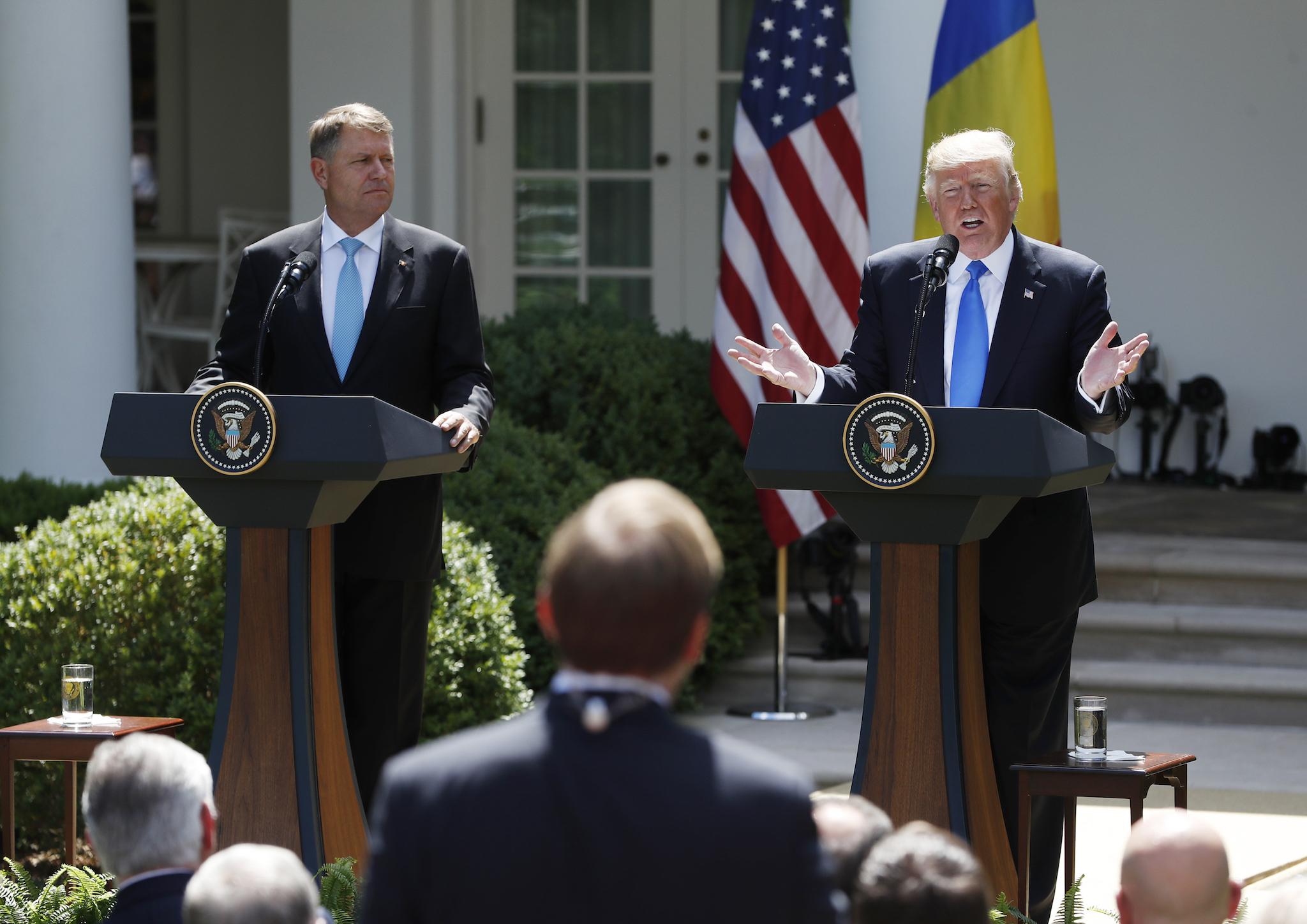Donald Trump reportedly lambasted Nato leaders for financial contributions in 'train wreck' dinner
President had already reprimanded world leaders during an earlier speech

Your support helps us to tell the story
From reproductive rights to climate change to Big Tech, The Independent is on the ground when the story is developing. Whether it's investigating the financials of Elon Musk's pro-Trump PAC or producing our latest documentary, 'The A Word', which shines a light on the American women fighting for reproductive rights, we know how important it is to parse out the facts from the messaging.
At such a critical moment in US history, we need reporters on the ground. Your donation allows us to keep sending journalists to speak to both sides of the story.
The Independent is trusted by Americans across the entire political spectrum. And unlike many other quality news outlets, we choose not to lock Americans out of our reporting and analysis with paywalls. We believe quality journalism should be available to everyone, paid for by those who can afford it.
Your support makes all the difference.Donald Trump reportedly lambasted Nato allies at a dinner in Brussels, hours after he had already reproached them for not spending enough on defence.
The President has expressed scepticism of the 29-member alliance, and it wasn’t until Friday that he reaffirmed the US’s commitment to mutual defence of Nato members after weeks of uncertainty.
The US is currently one of five countries of the alliance that meets NATO members’ pledge to spend 2 per cer of GDP on defence.
In his speech in Brussels, Mr Trump had also reprimanded members, visibly unsettling heads of states, and demanded that they pay more toward Nato's costs. But according to Foreign Policy magazine, he took it a step further at a confidential dinner with leaders following his remarks, saying that 2 per cent wasn’t enough and that allies should instead spend 3 per cent of GDP on defence.
The President also apparently threatened to cut US defence spending and have Europeans shell out “back pay” to make up for their low defence spending if they don’t dole out money quickly enough.
One former senior US government official briefed on the dinner described the event to FP as “a train wreck”.
“The dinner was far worse than the speech,” the person said.
According to FP, Mr Trump had two versions of prepared remarks for the dinner, one that took a more traditional approach and another that was formulated by his more Nato-skeptic advisers, Stephen Miller and Steve Bannon.
“He dumped both of them and improvised,” one person briefed on the dinner told the magazine.
Nato headquarters declined FP’s request for comment on the dinner.
On Friday, Mr Trump finally endorsed Nato’s collective defence clause, Article 5, after not doing so in Brussels like some of his advisers anticipated.
While he has routinely disparaged his Nato allies for their defence spending, Mr Trump has openly praised Russia, the alliance’s top geopolitical foe.
During a White House press conference with visiting Romanian President Klaus Iohannis, a reporter said that many of the countries on the eastern flank of Nato, including Romania, see Russia as a threat to the security and the peace in the region.
“Do you share this vision?” the reporter asked. “And do you think that the United States should act under Article 5, if any of these countries would be under military aggression?”
Mr Trump responded that he was “committing the United States to Article 5”.
“And that's one of the reasons that I want people to make sure we have a very, very strong force by paying the kind of money necessary to have that force,” the President added.
Mr Iohannis said he liked Mr Trump’s speech in Brussels, and that being an alliance means “everybody has to spend money”.
“This is called burden-sharing. And I fully agree, Mr President, to that,” the Romanian leader said.
Join our commenting forum
Join thought-provoking conversations, follow other Independent readers and see their replies
Comments